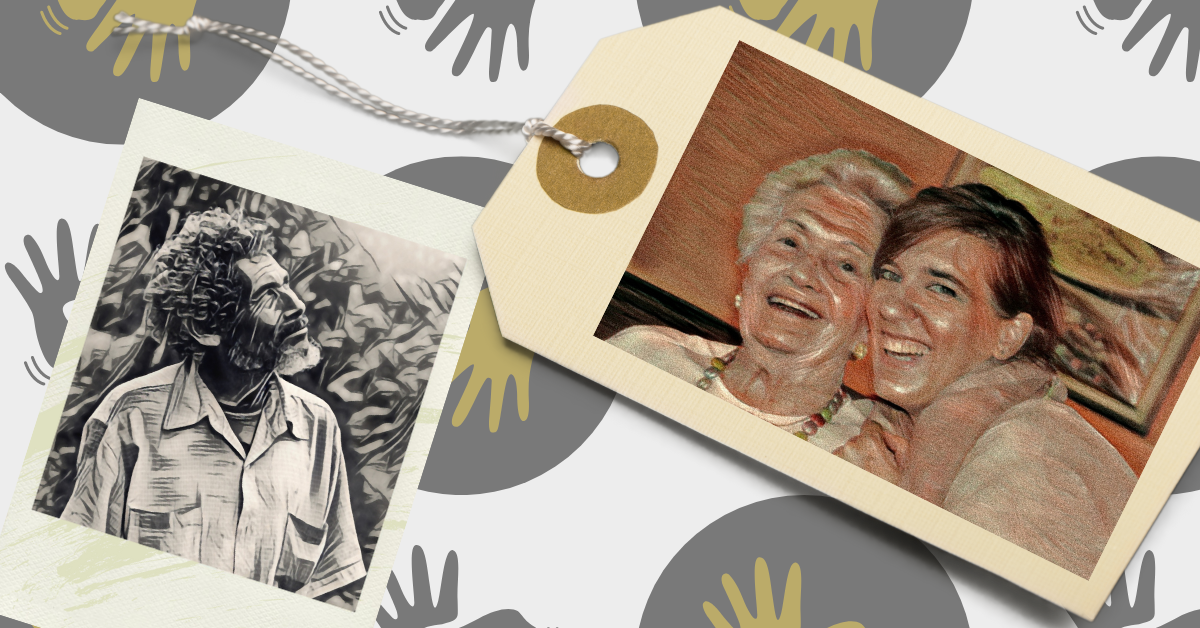Caregiver care program
OBJECTIVE
Make the Caregiver the author of her own life story, leading her path in the world with quality and fullness. Taking care of those who care, allowing the Caregiver to know how to take care of her elderly relative, without forgetting herself.
"Cuida-te para Cuidares" takes the lead in Portugal as a result of awareness of the need to solve the pain of Burnout syndrome, preventing and/or curing it in Informal Caregivers (IC) of elderly people. Therefore, its value proposition is based on training Informal Caregivers in their arduous and challenging role in knowing how to take care of themselves and their senior family members, with quality and well-being, without forgetting their own needs and your personal projects.
Through an innovative and specialized methodology, 9 steps in 9 weeks, informal caregivers improve their skills and quality of life, transforming themselves into the best version of themselves.
THE PROBLEM
Most caregivers are in a situation of vulnerability
(psychological, emotional, social), according to a state carried out, in 2023, by Merck confirms that the majority (83.3%) admit to having had Burnout/emotional exhaustion at some point; 78.5% attest that their mental health status influences the performance of their role and 77.9% need psychological support.
Burnout syndrome is a social problem, it is estimated that there are already 1.4 million informal caregivers in Portugal, so more and more female caregivers may suffer from this syndrome. Therefore, it is extremely important and urgent to train caregivers, with key empowerment tools to face their role with quality and well-being.
Portugal stands out among the most aged countries in Europe, with a higher pace expected up to 2060, according to OECD data; for which quick responses must be created in order to guarantee social cohesion, security and well-being of the elderly population. This requires medium/long-term family and social support, where caregivers play a leading role. Hence, “taking care of caregivers” is everyone’s duty: the State and civil society.
EXPECTED RESULTS
Create alliances with non-profit organizations that offer services to informal caregivers, either directly or indirectly.
These organizations have not shown interest in forming partnerships. This is because the intangible advantages gained from the partnership only benefit their recipients and not the organization itself.
To indentify concrete financial or recognition benefits, to motivate these organizations’ engagement. To enhance their current approach for achieving this goal, they need to focus on establishing partnerships to reach a larger number of caregivers.
To involve the key groups invested in the impact they aim to create – informal caregivers, senior citizens, and the systems that provide long-term care and support for the elderly and overall public health.


OUR CONTRIBUTION
ASyIm rewards organizations worldwide who are pioneering System Change by providing them visibility and professional coaching to bring their work to a next level of systemic impact.
We want to communicate and celebrate with our community the work of "Cuida-te para Cuidares" as one of the winners of 1s ASyIm Systemic Impact Pioneers Award.
Well done, for existing and for your essential action of systemic change in the world, impacting and transforming other leading agents so that the implementation of this global change on the various fronts of action, so that they are cooperative and value aggregators.
Alexandra Figueiredo, Cuida-te para Cuidares, Portugal



